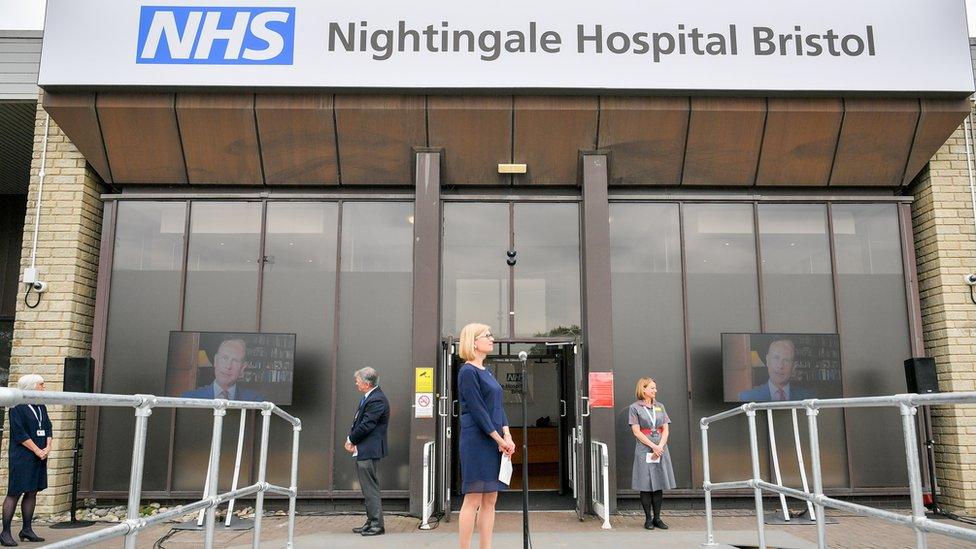Bristol man, 25, mistook monkeypox symptoms for Covid
- Published
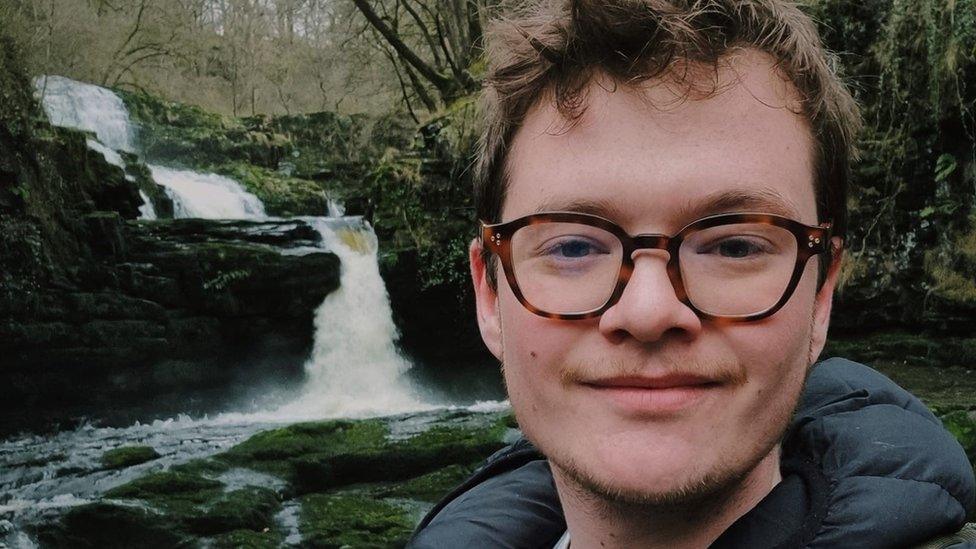
The government said 100,000 doses of the monkeypox vaccine have been acquired to combat the spread of the virus
One of the first men to be diagnosed with monkeypox in Bristol said he originally mistook his symptoms for Covid-19.
Conor, 25, who lives in the city, said he experienced a high temperature, sweating, aches, pains and "all of that that goes with Covid".
He said he "realised it wasn't Covid" when he began to notice blisters.
Vaccines to protect against monkeypox are now being offered at a clinic at the University of the West of England.
Conor said he was confined to his room and "was quite ill with [monkeypox] for 10 or 11 days".
After that he said he "did feel much better but you're still isolating until the blisters heal", so he spent about three weeks in isolation.
He said he was testing a number of times daily with Covid-like symptoms before the blisters appeared, which have now left "quite small" scars.
There are more than 50 cases of monkeypox in the south west, a number that has doubled since mid-July, according to the UK Health Security Agency (UKHSA).
Symptoms of monkeypox include a rash which starts on the face and spreads to the body.
The virus can be spread through close physical contact, sharing bedding, coughs and sneezes and most people experience mild symptoms.
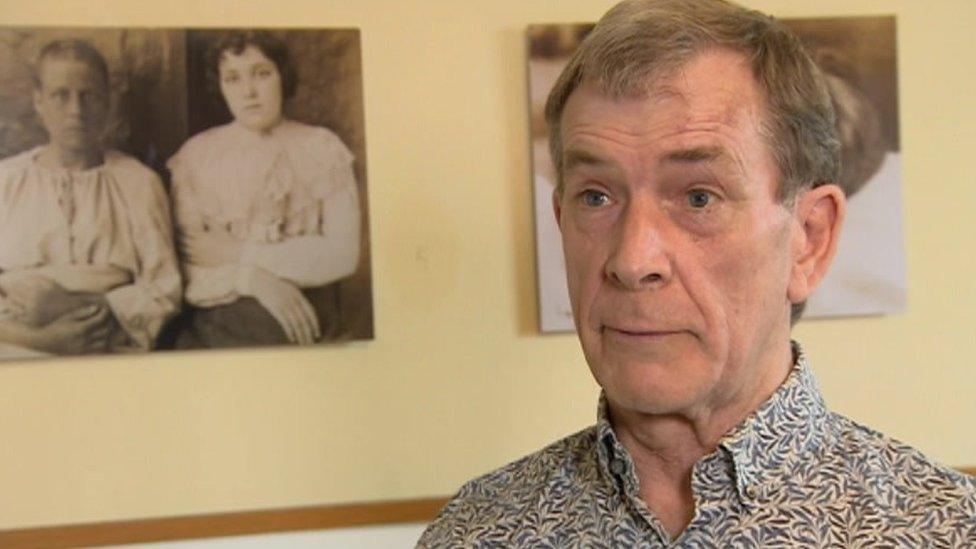
Professor Gareth Williams said it was "sensible" to stamp out outbreaks as soon as they were detected
Gareth Williams, professor of medicine at the University of Bristol, said: "There are outbreaks cropping up all over the place now and the sensible thing to stop it going global is to get in there and stamp those outbreaks out as soon as it's detected."
There have been 2,600 confirmed cases of monkeypox in the UK over recent weeks.
Monkeypox is not a sexually transmitted disease but the UKHSA said "a notable proportion" of the recent cases in the UK and Europe have been found in gay and bisexual men.
"So we are particularly encouraging them to be alert to the symptoms and seek help if concerned," they added.
They have asked anyone concerned they could be infected to phone NHS 111 or contact their local sexual health clinic, but call or email ahead of a visit.

Follow BBC West on Facebook, external, Twitter, external and Instagram, external. Send your story ideas to: bristol@bbc.co.uk , external
- Published3 August 2022
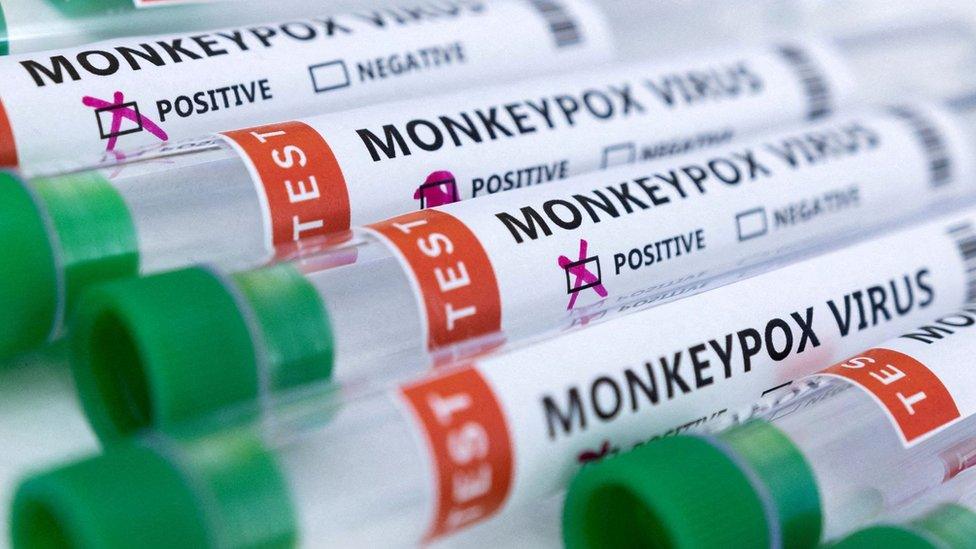
- Published5 August 2022
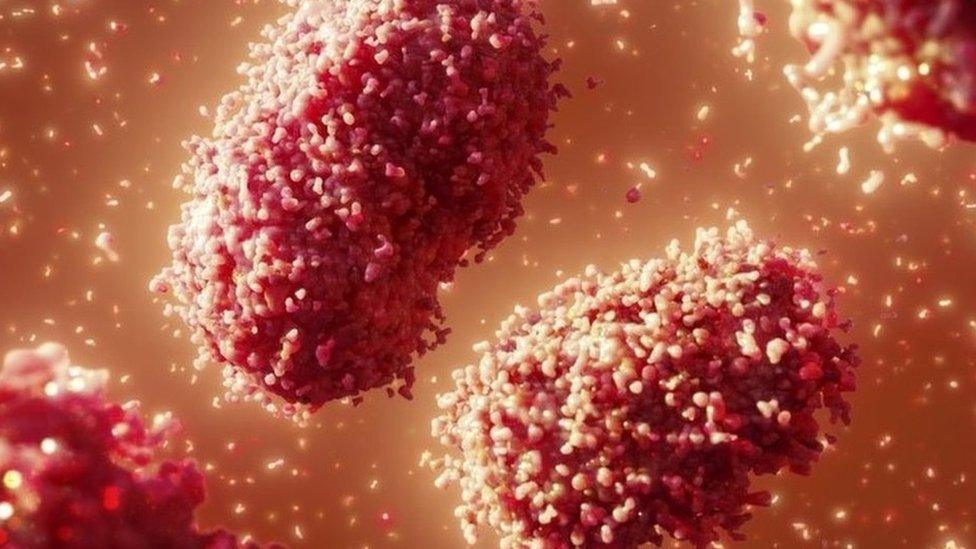
- Published13 April 2021
